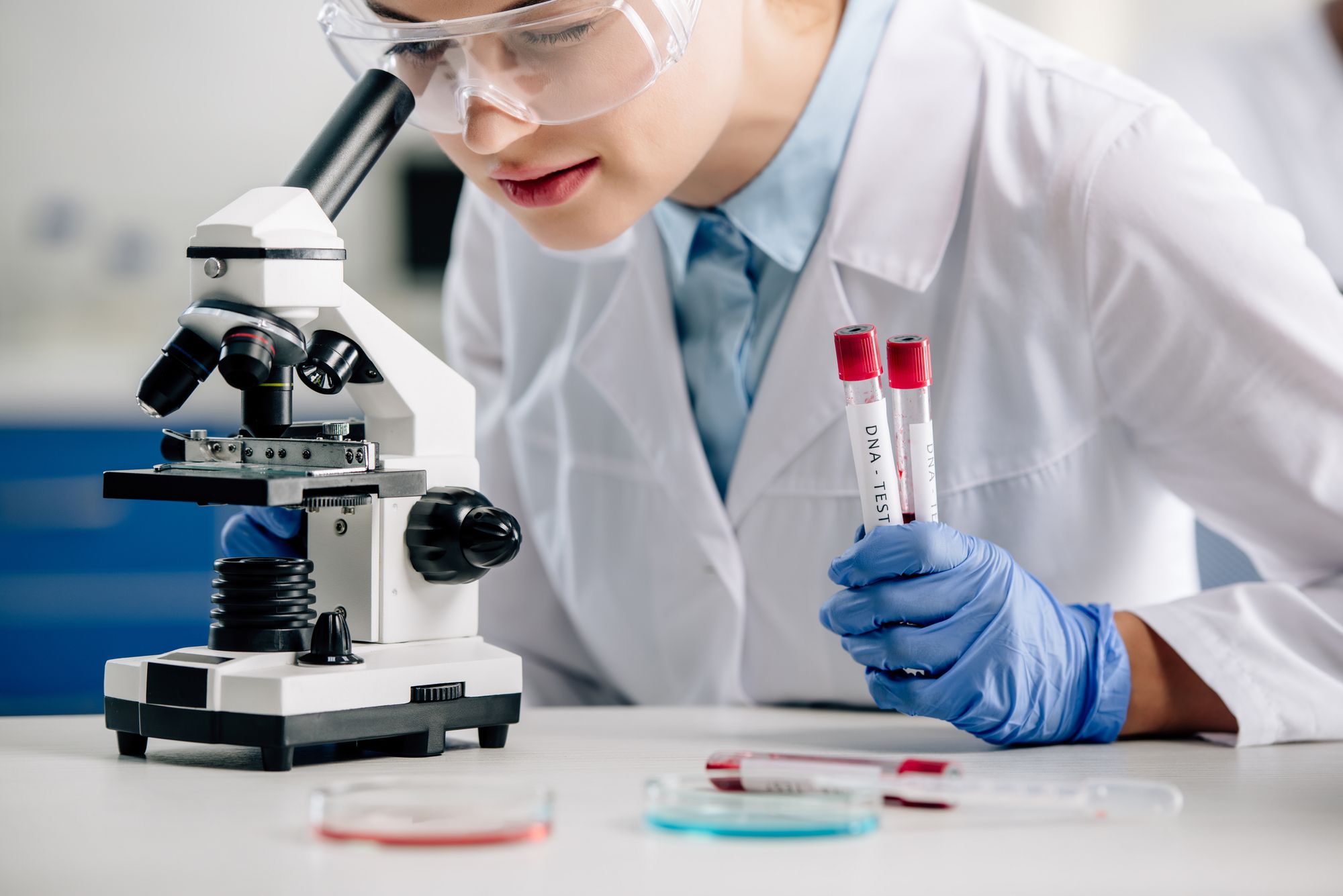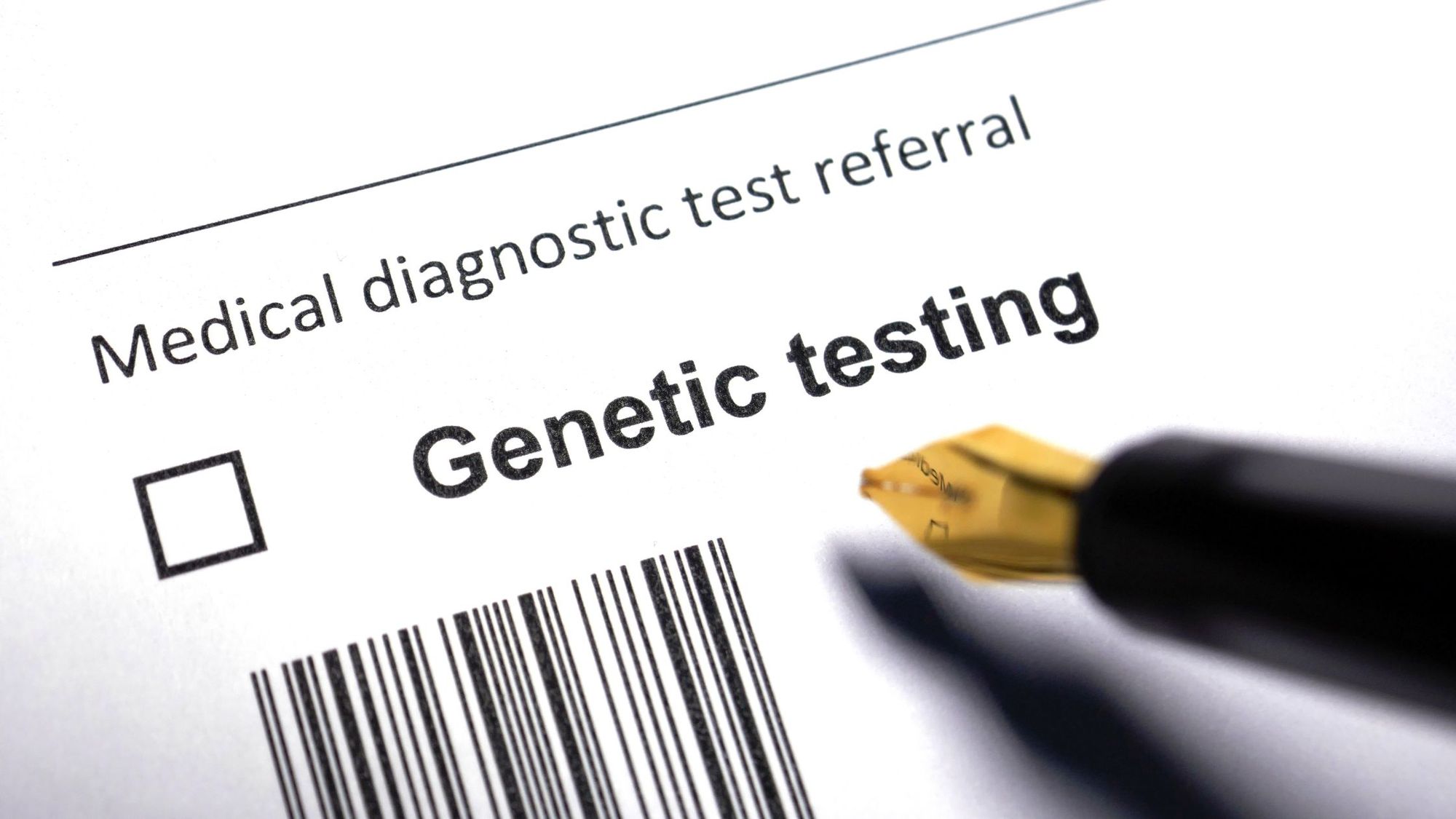
People who have a family history of diseases feel concerned about finding out if they are a carrier for a genetic mutation since this means they could potentially pass a genetic disease to their future children. After all, if their child acquires the genetic condition, it will impact their quality of life, put a strain on finances, take a mental toll on the parents, and impact the family dynamics. Bear in mind that health problems don’t just affect that child, but impact the whole family.
For these reasons, it is prudent to check if you are a carrier before planning for a family, to have peace of mind and safeguard the health of your future children. For instance, if you observe that several family members have Sickle Cell Disease, which is a genetic blood disorder, you have every right to feel concerned that your future children may acquire it. This is a common inheritable disease caused from a gene mutation in the HBB gene, resulting in anemia, poor blood circulation, episodic pain, frequent infections, etc.
Many inheritable diseases and genetic health conditions could have been avoided if the parents checked to find out if they were a carrier, and opted for other pregnancy options, such as assisted reproductive technology via Preimplantation Genetic Testing (PGT).
Genetic Counseling for a Genetic Mutation Carrier
If you’ve already had a genetic screening test and tested positive for being a carrier of certain genetic diseases, there’s no need to panic. A person who has inherited the mutation does not necessarily result in developing the genetic disorder. In fact, a carrier is a person who has a mutation in only one copy of a gene and the paired or other copy of that gene is normal. . Therefore, a person who is a carrier of autosomal recessive disorder usually has no symptoms, and they’re only the genetic carrier.
However, when both parents are carriers for the same genetic condition, their children have a much higher risk of developing the disease, because they have a 25% chance of passing two mutated genes. The child needs to inherit a mutated copy of the autosomal recessive gene from the mother and father to manifest a life-threatening or seriously debilitating disease. If you find out that you’re a carrier, it would be best to receive genetic counseling with a specialist to consult about the risk of your future kids.

What if You’re a Genetic Mutation Carrier, and You Want to Conceive a Child?
Many health conditions are known to be caused by genetic mutations. In an autosomal dominant genetic inheritance pattern, only one parent with a single copy of the mutated gene may be enough to result in a disorder in the child. This means any offspring has a 50% chance of manifesting the condition and this condition is overt and usually seen in every generation.
In contrast, two copies of the mutated gene, one from each parent carrier, are needed for an autosomal recessive disorder to manifest in a child. Hence, this may not show in every generation. Examples of these are Sickle Cell Anemia, Cystic Fibrosis (CF), and Tay-Sachs disease. A carrier is someone who has a genetic mutation but usually shows no symptoms. That’s because change occurred only in one gene of a pair and the other one is working properly, so it masks the recessive condition. In this instance, the carrier has the potential to pass the disease to their future offspring if they reproduce with someone who is also a carrier of the same condition. If their partner is not a carrier, future offspring will also be carriers but may show no symptoms of the disease.
Furthermore, there are also mitochondrial mutations where the mother is the genetic carrier. An example of this is non-syndromic hearing loss and deafness due to changes in the MT-RNR1 gene. These are inherited only from the mother and she passes the mutated gene to all of her children. Notably, the sons will not pass it on but all the daughters will pass the mutated genes to their future children. On top of that, parents could also be sex-linked carriers of faulty genes in the sex chromosomes. An example of sex-linked disorders on the X chromosomes are Hemophilia.
If you find out that you’re a carrier, fret not. Take comfort in knowing that all humans carry mutated genes that have the potential to cause some health issues. And most people go through their lives without knowing they’re even carriers since they and their children don’t show symptoms. Research shows that approximately 98% of couples may not carry genetic mutations of the same genetic disease. And even if couples are carriers of the same genetic disease, the possibility of having a child affected with a disease is 25% in each pregnancy. If you and your spouse find out that you both are carriers of the same condition before pregnancy, there are many reproductive options to reduce the risk of having a child with a genetic condition.

The Importance of Carrier Screening and Genetic Testing
Ideally, carrier screening and genetic counseling should be performed before a couple decides to get pregnant. Today, there are even home tests like CircleDNA which makes carrier screening very easy and convenient to do. All you need is a simple cheek swab, then you send the samples via mail courier. This technology relies on the most advanced whole-exome genome sequencing to provide you with 500+ reports on your health risks, neurological conditions risk, family planning, inherited cancer risk, nutrition, exercise, etc.
With this kind of information, couples learn about their reproductive risks, including potential health concerns they may pass on to their future children. If an individual finds out he or she is a carrier for a specific condition, it would be ideal if the reproductive partner takes the same test. This will determine if they are both carriers of the same condition. From there, they could receive genetic counseling to talk about potential reproductive outcomes and options to make sure their future child is not at risk of developing any of the genetic diseases screened.
Genetic counseling provides couples with a broad range of reproductive options to ensure they give birth to a healthy child. According to the American College of Obstetrics and Gynecologist (ACOG), couples who are confirmed carriers suggest to share findings with their first and second degree relatives. The patient should inform family members of their health risks, so their loved ones can also prepare for future eventualities. It would be prudent to tell family members that carrier screening is available and accessible so they can also make educated choices about their overall health and future reproduction.
Assisted Reproductive Technology: How to Get Pregnant Without Passing on the Mutation?
If the two partners are carriers of the same genetic conditions, the following options are available to them with the help of a reproductive endocrinologist or fertility specialist:
IVF/PGT: This acronym is a form of assisted reproductive technology which means in vitro fertilization and preimplantation genetic testing. The two go hand-in-hand as embryos harvested in the IVF phase undergo genetic testing before they are implanted in the womb. In IVF, the woman takes medications to produce multiple eggs. Once they reach the peak, they are harvested and fertilized with the partner’s sperm. The fertilized embryos are tested for mutations before they’re transferred to the uterus where they grow full-term. Only viable and healthy embryos are selected to assure the parents they have a healthy baby.
Sperm or Egg Donation: If there’s a very strong likelihood that children can inherit debilitating conditions with severe symptoms like Duchenne muscular dystrophy, or those genetic disorders that shorten life spans like Tay Sachs disease and Cystic Fibrosis, the couples can choose to use an egg or sperm donor who is not a carrier that one or both couple carries. Genetic counseling will help and finding a good fertility center that can screen donors will provide the most peace of mind.
Prenatal Screenings and Diagnostic Testing: If carrier screening was not done before pregnancy, but one or both couples find out they are carriers, they still have the option to do genetic screening while the woman is pregnant.
Invasive diagnostic tests like chorionic villus sampling (CVS) and amniocentesis are recommended. CVS is done usually at 10 to 13 weeks, while amniocentesis occurs at 15 to 20 weeks. Both diagnostics use a long needle to harvest samples from the placenta or amniotic fluid to confirm the results of simpler screening.
Should the baby have a genetic condition, couples can use the information to prepare for the birth and contact specialists ahead to manage treatment. For example, PKU or phenylketonuria is an inherited disease where an enzyme to break down phenylalanine is deficient in the body due to a mutation in the PAH gene. Early treatment prevents irreversible problems like seizures, developmental delays, intellectual disabilities, and behavioral problems. Many babies diagnosed with this deficiency early have gone on to live normal lives.
Adoption: Some couples who fear they are both carriers of debilitating diseases opt for adoption. Since IVF and PGD are very expensive procedures, those who have limited financial resources opt to adopt kids instead.
If you’re planning to get pregnant, it would be helpful if you and your partner opt to do a DNA test to check if you are carriers of any recessive diseases. This test will also determine what your risks are for having future kids with a recessive genetic disease. It is also important to note that some genetic diseases occur more often in certain ethnicities, so it’s crucial to pay attention to these details for the safety of your future children.
Finally, take the CircleDNA Family Planning DNA test, which will reveal if you’re a genetic mutation carrier for life-threatening or serious genetic diseases. Although genetic testing is not mandatory, it is highly recommended for the best possible family planning and to have the safest pregnancy.
References:
- Diseases Caused by Mutations in Mitochondrial Carrier Genes SLC25: A Review (Ferdinando Palmieri et.al.) https://pubmed.ncbi.nlm.nih.gov/32340404/
- What it means to be a carrier of a genetic disorder (JScreen in Association with Emory University) https://www.jscreen.org/blog/what-it-means-to-be-a-carrier-of-a-genetic-disorder/
- Carrier Screening for Genetic Conditions (ACOG) https://www.acog.org/clinical/clinical-guidance/committee-opinion/articles/2017/03/carrier-screening-for-genetic-conditions







Comments are closed.